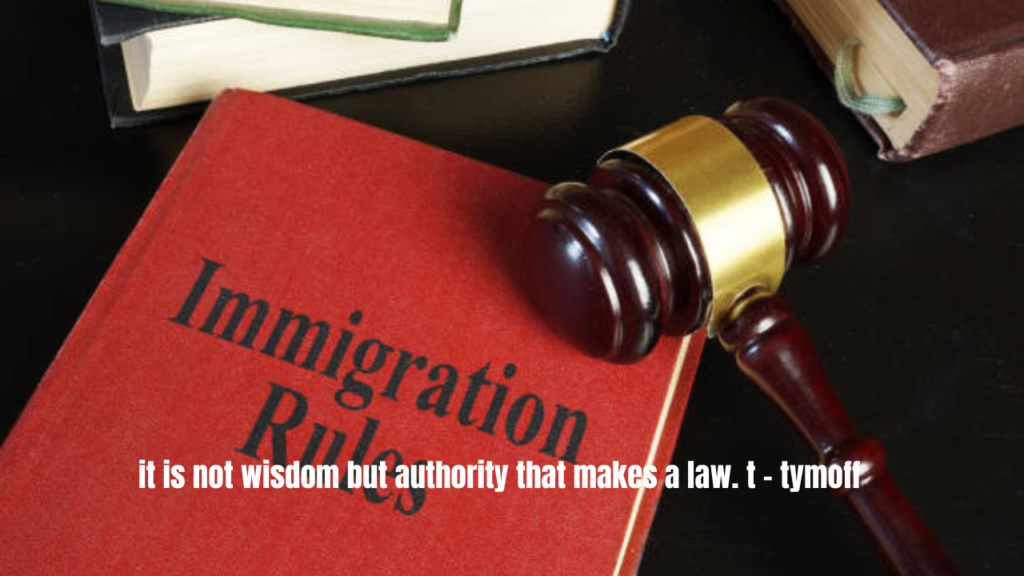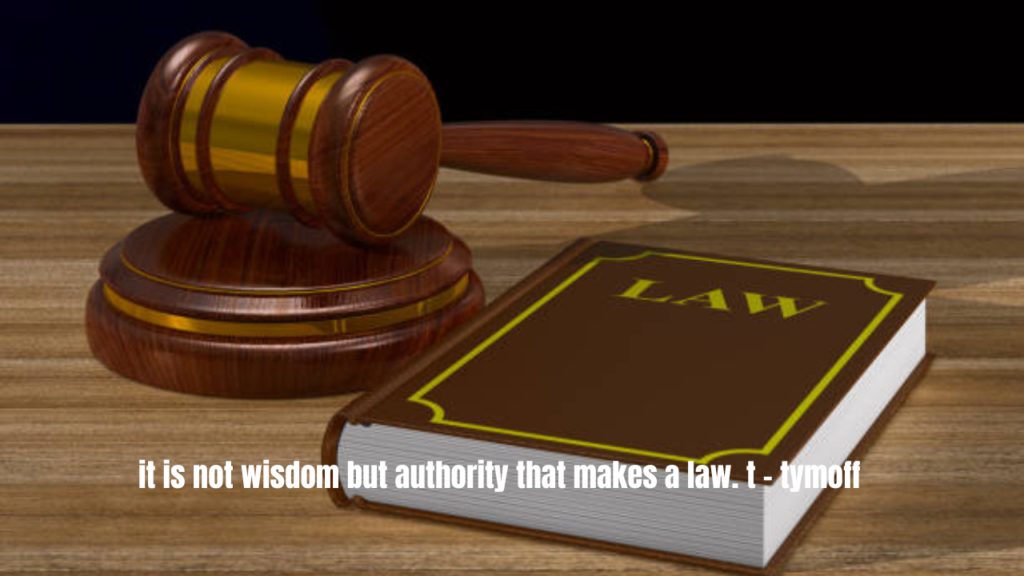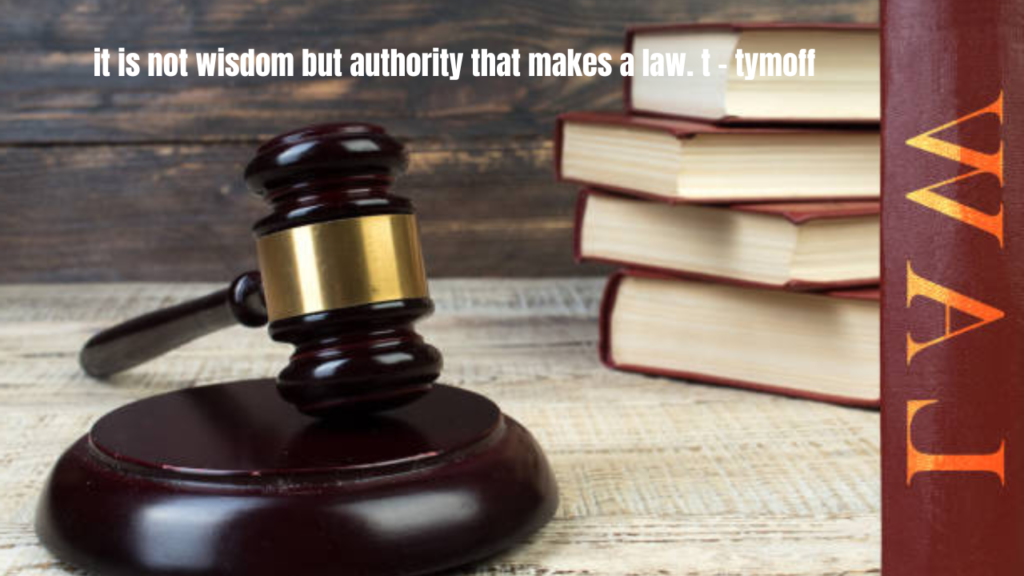What Defines a Law?
When considering the statement “it is not wisdom but authority that makes a law. t – tymoff”, one is led to a deeper reflection on the essence of lawmaking. Laws govern societies, ensuring order and structure. However, they are not necessarily crafted through profound wisdom but enforced by authority. This distinction raises the question: does authority override wisdom in the legislative process, and why?
The Role of Authority in Law
Authority is the backbone of lawmaking. Without recognized power, laws are merely suggestions or ideals. A government, court, or ruler establishes laws through authority, not because those laws always embody ultimate wisdom. This reliance on authority ensures that societies function cohesively, even if the laws are flawed or controversial.
Consider history. Those in power created many laws without considering moral or ethical wisdom. Instead, they reflected the interests of those in authority. The ability to enforce compliance through policing or judicial systems is what gives a law its legitimacy—not necessarily its fairness or intelligence.

Wisdom’s Limited Influence
While wisdom should ideally guide lawmaking, it is often sidelined by political, economic, or social agendas. Laws are crafted within the confines of authority’s power structures, where expediency or control may take precedence over more profound insight. This reality highlights the truth in the statement, “It is not wisdom but authority that makes a law. t – tymoff.”
For example, authoritarian regimes often impose laws that benefit the ruling class while ignoring the welfare of the masses. These laws are enforceable because of authority, not because they are wise or just.
The Balance Between Authority and Wisdom
Should wisdom play a more significant role in shaping laws? Absolutely. A wise law reflects universal values, considers the common good, and adapts to evolving societal needs. Yet, wisdom lacks the coercive force that authority wields. Without the machinery of enforcement, even the wisest laws can become ineffective.
The modern democratic process attempts to balance these two elements. Legislators may consult experts and conduct debates to incorporate wisdom, but ultimately, authority sanctions the final decision. This delicate interplay shapes the legal landscape.
Examples from History
- The Magna Carta: While this document is celebrated for its wisdom in establishing certain rights, it was enforceable only because King John’s authority allowed its implementation.
- Jim Crow Laws: These were enforced through authority despite being profoundly unwise and discriminatory. This dark chapter in history demonstrates how authority, rather than wisdom, can dictate the course of justice.
The Risks of Authority-Driven Lawmaking
When authority dominates lawmaking without incorporating wisdom, societies face significant risks. Such laws can lead to oppression, inequality, and unrest. The unchecked authority of law can erode trust in governance, making striving for wisdom in legislation essential.
However, wisdom alone cannot create enforceable laws. A thoughtful equilibrium, where authority enacts laws guided by knowledge, is critical for fair and sustainable governance.
Why This Statement Resonates
The phrase “It is not wisdom but authority that makes a law.” t—tymoff” serves as a stark reminder of the realities of lawmaking. It underscores the necessity of examining who holds power and how it is exercised. Laws are not self-enforcing; they rely on the might of institutions, making authority indispensable, albeit imperfect.

Also read: Bizhunet: Exploring the Potential
Final Thoughts
Authority forms the backbone of law, but wisdom gives it moral and ethical depth. Recognizing these forces’ differences is crucial for understanding how laws are created and upheld. As societies evolve, striving to integrate wisdom into authority-driven systems remains a vital goal. By doing so, we can ensure that laws command respect and foster justice and equity for all.
In the end, the statement “It is not wisdom but authority that makes a law.” t—tymoff captures a profound truth about the dynamics of power and governance, urging us to reflect on how authority shapes the rules we live by.

